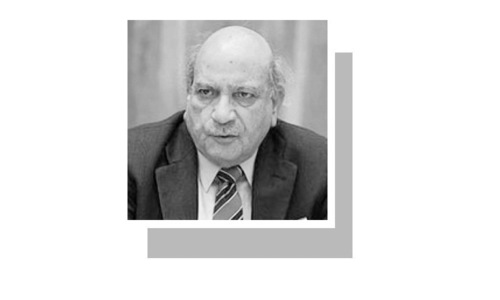EXTREMISM and intolerance are straining the social fabric of societies. When a state fails to regulate its religious affairs and institutions, it is likely that radical elements within some of these institutions may undermine its authority. Due to the state’s loose control on religious institutions, the latter have been used as breeding grounds for extremism.
In Muslim countries, religious misconstruction serves as the foundation of extremism. Whereas in non-Muslim countries, the vacuum created by the absence of religion is filled by Islamophobia. Religious extremism continues to be the common denominator, regardless of the state religion.
Issues related to religion and religious leaders are often seen as sensitive and are swept under the rug. The criterion for the appointment of imams remains a key issue. In Pakistan, the state enjoys little control over the appointment of imams. It is typically subject to local approval. Although in prominent mosques the government appoints imams, prayer leaders of local mosques seldom go through the same vetting process. The absence of a screening process poses a serious challenge.
The menace of extremism can be curbed if mosques and religious leaders are regulated by the government. In Turkiye, the Directorate of Religious Affairs (Diyanet) is tasked with the appointment and supervision of imams. Diyanet is entrusted with drafting a weekly sermon which is delivered in mosques across Türkiye. In Saudi Arabia, the Ministry of Islamic Affairs, Dawah and Guidance is in charge of the affairs of mosques and the appointment and supervision of imams.
In Iran, the Ministry of Culture and Islamic Guidance oversees religious affairs, including the selection of imams. The potential imams are assessed based on their religious knowledge and loyalty to the state. The Friday Prayer Council is responsible for the distribution of pamphlets to around 900 Iranian cities weekly. These pamphlets comprise guidelines according to which the imams are to address Friday prayers.
Extremism can be curbed if mosques are regulated.
The National Action Plan was formulated to root out terrorism and extremism. NAP I highlighted the need for regulation of religious seminaries. Point 10 of NAP called for the registration and regulation of religious seminaries. The revised NAP has been divided into two domains: kinetic and non-kinetic. The regulation of madressahs falls under the non-kinetic domain. In Pakistan, as per federal law, all madressahs must be registered and licensed by the government. In the capital, however, numerous seminaries are operating illegally.
Out of a total of 562 madressahs operating in Islamabad, approximately 250 are without a license. The authorities seldom take action against such seminaries, fearing a backlash from religious parties. In an effort to register and mainstream madressahs, the Directorate General of Religious Education was established under the Ministry of Federal Education and Professional Training (MFEPT) in 2019.
By May 2021, the DGRE had registered over 5,000 madressahs in collaboration with the Ittehad Tanzeematul Madaris Pakistan (ITMP). In KP, seminaries were placed under the jurisdiction of the education department. However, more than five years after the announcement, the registration of madressahs is far from complete.
The National Counter-Terrorism Authority was tasked with revising the curriculum of religious seminaries in collaboration with the HEC. Two committees were formed to overlook the revision of the religious curriculum; however, no significant progress has been observed.
Certain measures can be put into place to ensure the systematic appointment of imams. Firstly, proper education and training must be ensured. This can be achieved by collaborating with the ITMP and establishing a body that specifically oversees the training of imams. Screening and selection processes are needed to ensure that the individual is suitable for the position.
Providing the imams with a conducive environment will ensure the efficient imparting of knowledge. This can be achieved by establishing an institution under the MFEPT that assesses aspiring imams and sets a benchmark against which future aspirants can be evaluated.
There is a dire need for evaluation. Periodic evaluation will ensure that the imams are carrying out their duties effectively. Evaluation may include feedback from local mosque committees. The accountability of imams must be ensured to prevent the violation of laws.
Sermons at Friday prayers need to be regulated. An umbrella organisation can be devised, functioning under the Ministry of Religious Affairs and Interfaith Harmony, which should be tasked with regulating Friday sermons. Such an endeavour can only be successful if there is cooperation between the centre and provinces.
The writer is a graduate of NDU and is currently pursuing a postgraduate degree from CIPS, NUST.
Published in Dawn, March 31st, 2023













































Dear visitor, the comments section is undergoing an overhaul and will return soon.